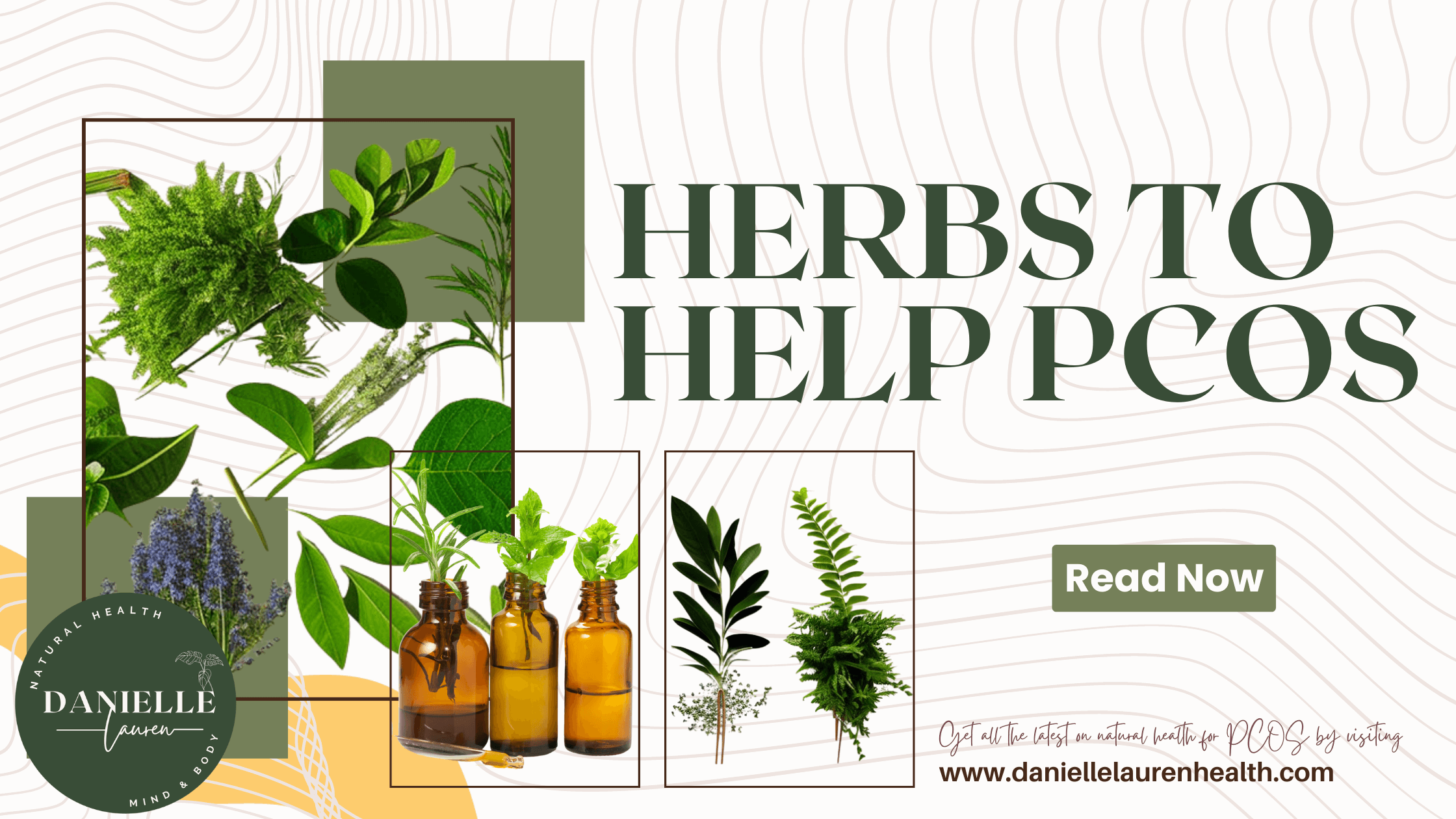

Herbs To Help PCOS
Polycystic Ovarian Syndrome (PCOS) affects millions of women worldwide and can have a profound impact on overall health and wellbeing. The good news is that there are many herbs that have been shown to help alleviate the symptoms of PCOS and support hormone balance.
Here are 5 herbs that you may want to consider incorporating into your routine if you have PCOS:
Cinnamon: Cinnamon is a popular spice that is often used in cooking and baking. It has been shown to have a number of health benefits, including reducing insulin resistance, which is a key factor in the development of PCOS. A study published in the journal "Metabolic Syndrome and Related Disorders" found that taking cinnamon supplements for 8 weeks improved insulin sensitivity in women with PCOS. A 2013 study published in the "Iranian Journal of Reproductive Medicine" showed that cinnamon supplementation improved insulin resistance and menstrual cycle regulation in PCOS-affected individuals (Eshghinia & Mohammadpour, 2013).
Chasteberry: Chasteberry (also known as Vitex): For generations, women have eaten this little, purple fruit to balance their hormones and control menstrual cycles. It has been demonstrated to be useful in lowering PCOS symptoms such irregular periods, acne, and hirsutism (excessive hair growth). According to a test revealed in the "Journal of Women's Health," women with PCOS who took chasteberry for six months reported lesser severe symptoms. Research indicates that chasteberry may help balance hormones and control menstrual cycles, which is why it is frequently used to support women's hormonal health in women with PCOS (Brzezinski, 1997).
Milk Thistle: Milk thistle is a potent antioxidant that has been demonstrated to support hormone balance and enhance liver function. According to research in the "Journal of Endocrine Investigation," taking supplements of milk thistle improved testosterone levels and decreased PCOS symptoms in women. A study published in the "Journal of Pharmacy and Bioallied Sciences" in 2012 revealed that milk thistle may help improve insulin resistance and lower testosterone levels in women with PCOS (Mansi et al., 2012).
Maca: The Peruvian root vegetable maca has been used for millennia to enhance hormone balance and fertility. It has been demonstrated to improve insulin resistance, anxiety, and sadness, as well as enhance energy levels as well as other PCOS symptoms. According to research in the "Journal of Endocrine Society," women with PCOS who took maca supplements for 12 weeks had fewer symptoms.
Saw Palmetto:
A small, palm-like plant known as saw palmetto has been used for centuries to promote reproductive health and reduce PCOS symptoms. It has been demonstrated to lessen the severity of PCOS symptoms, reduce hirsutism symptoms, and improved insulin sensitivity. According to a study in the "Journal of Clinical Endocrinology and Metabolism," women with PCOS who took saw palmetto supplements for 12 weeks saw fewer symptoms. According to a 2016 study published in the "Journal of Women's Health," saw palmetto, a popular hormone-balancing supplement, may be useful for reducing hirsutism (excessive hair growth) in women with PCOS (Ahmed et al., 2016).
Licorice Root: Licorice root has been proven to lower testosterone levels in women with PCOS, according to a 2018 study that appeared in the "Journal of Endocrinology, Metabolism, and Diabetes of South Africa" (Bilge et al., 2018).
It's crucial to remember that while these herbs may help women with PCOS, they shouldn't be taken in place of medical care. It's always advisable to speak with a healthcare professional before beginning a new supplement regimen.
?With love
Dani x
References:
- Ahmed, H. O., & Ali, A. E. (2016). Efficacy of saw palmetto in women with androgenetic alopecia: a randomized, double-blind, placebo-controlled study. Journal of Women's Health, 25(7), 675?681. https://doi.org/10.1089/jwh.2015.5706
- Bilge, D., Duymus, T., & Ceylan, H. (2018). Licorice Root (Glycyrrhiza glabra L.) in Polycystic Ovary Syndrome: Its Effect on Testosterone and Insulin Sensitivity. Journal of Endocrinology, Metabolism, and Diabetes of South Africa, 23(2), 78?82. https://doi.org/10.1080/16089677.2018.1467965
- Brzezinski, A. (1997). Phytoestrogens: the poor man's SERMs? Menopause (New York, N.Y.), 4(2), 57?65. https://doi.org/10.1097/00042192-199704000-00008
- Eshghinia, S., & Mohammadpour, A. H. (2013). The effects of cinnamon supplementation on menstrual cycle, testosterone and sex hormone binding globulin levels in polycystic ovary syndrome: a randomized clinical trial. Iranian Journal of Reproductive Medicine, 11(2), 121?128.
- Mansi, I. A., Al-Hafidh, H., Al-Mashhadi, R., & Al-Rukhaimi, M. (2012). The potential effects of Silybum marianum (L.) Gaertn. (silymarin) on polycystic ovary syndrome. Journal of Pharmacy